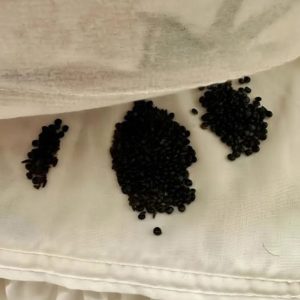Have you ever noticed that some medications don’t seem to work after a few days?
Normally, people might think the drug is fake, expired, or that they were given
the wrong prescription. Some may even blame their misfortune on external factors.
But did you know that there are certain foods that you shouldn’t mix with specific medications?
Indeed, certain foods can prevent your medications from working or, even worse,
cause dangerous side effects. We have compiled six common food and medication
combinations that you should avoid. Many people might not be aware of these, so feel free to share this information to help others.
1. Bananas and Anti-hypertensive Drugs
While bananas are rich in potassium, anti-hypertensive drugs also increase potassium
levels in the blood. Combining anti-hypertensive drugs and bananas can lead to an excess
of potassium, which may cause irregular heartbeat, heart palpitations, and conditions
like arrhythmia. It’s important to protect your heart by avoiding this combination.
2. Vitamin C and Anti-malaria Drugs
All drugs are metabolized in the liver, which is rich in iron. Iron is crucial for the
life cycle of malaria parasites (plasmodium). Vitamin C aids in the absorption of iron,
which then travels to the liver. This provides a surplus of iron that malaria parasites
thrive on, counteracting the effects of your malaria medication. So, it’s best to avoid
citrus fruits or supplements high in Vitamin C while treating malaria.
3. Painkillers and Soft Drinks
Soft drinks contain carbonated water, which consists of carbon dioxide dissolved in
water under pressure. When you consume painkillers with soft drinks, the carbon dioxide
and acidity increase the concentration of the drugs in your blood, leading to
toxicity that can be fatal. It’s wise to stick to plain water when taking painkillers.
4. Dairy Products and Antibiotics
Antibiotics like tetracycline and penicillin are used to treat and prevent bacterial infections.
Dairy products are high in calcium, which hinders the absorption of these antibiotics,
reducing their effectiveness. To ensure your antibiotics work as intended,
avoid consuming dairy products around the time you take your medication.
5. Grapefruit and Statins
Statins are used to lower cholesterol levels but, like most drugs, they come
with side effects. Grapefruit contains a compound that prevents the breakdown
of statins in the intestine, leading to higher levels of the drug in your system
and increasing the risk of side effects. It’s best to avoid grapefruit when you’re on statins.
6. Leafy Vegetables and Anticoagulants (Blood Thinners)
Anticoagulants, also known as blood thinners, are medications that slow down the blood clotting process.
They don’t actually thin your blood but prevent blood clots from getting larger and are used to prevent
strokes and treat heart disease. Examples include aspirin and warfarin. Leafy vegetables are rich in
Vitamin K, which promotes blood clotting and thus counteracts the effect of anticoagulants.
Be cautious with your intake of leafy greens while on these medications.





